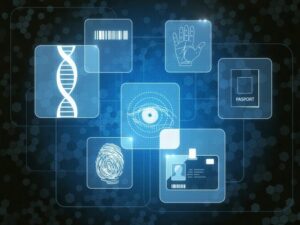This fall, schools in North Adams, Massachusetts, will be deploying biometrics as a way to make the lunch line more efficient. Finger scanners courtesy of identiMetrics, working in tandem with the school’s POS solution called NutriKids will be replacing swipe cards, allowing for fast and secure payment while protecting financial details of underprivileged students and giving parents a better idea of how their children are eating via online transaction tracking.

Tammy Daniels, a writer for local publication iBerkshires, is reporting that the although the biometric lunch line technology is full of promise, it’s not receiving the warmest of receptions. Upon receipt of the school’s notice that biometric readers would be used in the lunch room, parents took to social media voicing their disdain.
The parental outrage revolves around worries that the biometric templates used to authorize the buying of food will lead to the storage of a child’s physical characteristics. This is a common fear in large scale deployments of biometric technology, but in this case it doesn’t hold up. identiMetrics fingerprint scanners don’t store full fingerprints, just the information that allows them to match certain characteristics to an account expressed as a number.
Richard Alcombright, mayor of North Adams and chairman of the School Committee told iBerkshires that the complaints are not enough reason to abandon the program and technology. The biometric lunch line program is optional and parents have been sent materials explaining how the technology works. The system is expected to go live by the middle of next week.
Though the biometric lunch line in North Adams is safe from being scrapped, calmer minds don’t always prevail in what Walter Hamilton, chairman of the IBIA, terms as techno panic. Earlier this year the Florida Senate passed Bill 188 banning the collection of student biometrics throughout the state.
“Last year, the American Legislative Exchange Council published a white paper on biometrics and privacy which said that “there are real benefits to using biometrics. [Legislators] must use great care to craft privacy policies that guard against the drawbacks without jeopardizing the benefits of new technologies,”” said Hamilton in a recent interview with FindBiometrics.
He went on to explain the situation that lead to the passing of bill 188: “In the case of Florida, the extreme legislative action we are now faced with was prompted by an unfortunate incident in Polk County last year where a school set up a pilot test of iris recognition to ensure that school children got on the right bus. The problem was that there was no parental notice or informed consent and the superintendent of the school district had not been consulted in advance. So it was understandable that there was fear and negative reaction. Rather than ban the technology completely, IBIA urged the Florida legislators to adopt reasonable privacy protective measures such as public and parental notice, written parental consent, limited disclosure, data protection, limited access to biometric data, eventual data destruction and notification to parents in the event of a data breach. These are all reasonable policies that IBIA supports. Unfortunately, the legislators didn’t listen to logic and instead responded to political pressure from groups that were lumping biometrics into a broader issue related to parental rights and government intrusion on student privacy.”
Thanks to proper vetting of the technology, a respect for parents’ right to opt-out and an understanding of how biometric readers operate, the North Adams school system has overcome the techno panic that gripped Florida and is on the verge of upgrading students lunch time.
—
September 12, 2014 – by Peter B. Counter


Follow Us